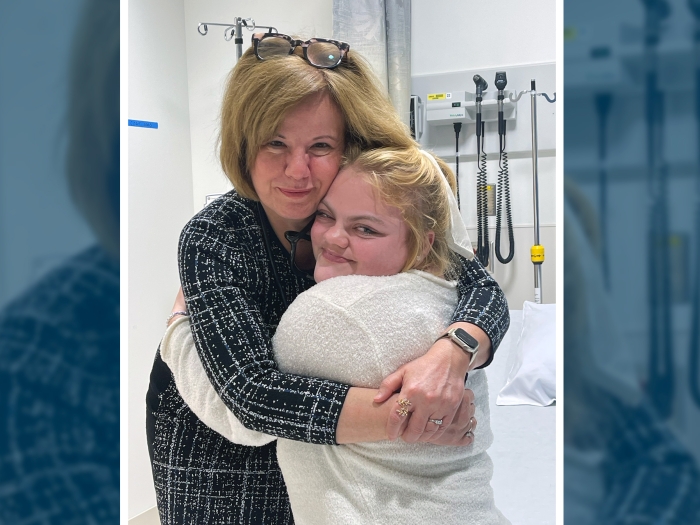With Eli Lilly’s new insulin price cap announcement, an endocrinologist discusses how it’ll affect diabetes patients
11:13 AM
Author |

In early March, Eli Lilly made headlines after announcing a new $35 price cap on insulin for individuals with private insurance. Novo Nordisk and Sanofi made their own price reduction announcements shortly after Eli Lilly’s move.
Here, Rodica Pop-Busui, M.D., Ph.D., Larry D. Soderquist Professor of Diabetes and Associate Director for Clinical Research, Mentoring, and Development at the Elizabeth Weiser Caswell Diabetes Institute discusses the potential impacts of the new cost reduction on people with diabetes.
Can you discuss the impact the new price caps will have for patients?
Pop-Busui: Diabetes is the most expensive chronic disease in the United states. As many as one in four Americans compromise their health by rationing insulin because they cannot afford it, and as a result skip or ration doses to make ends meet. For millions of Americans, skyrocketing insulin prices have made it financially out of reach. Additionally, diabetes prevalence is inversely related to household income level, with the poorest communities seeing the highest rates.
According to the National Institutes of Health, those who earn less than $30,000 per year are three times as likely to have diabetes than those who make over $80,000 per year; additionally, those lower on the socioeconomic status ladder are more likely to develop diabetes, experience more complications and die sooner than those higher up on the SES ladder. Moreover, Black and Hispanic individuals are more than 50% more likely to have diabetes than non-Hispanic white individuals and are 2.3 times more likely to die from diabetes than their white counterparts.
Prices for insulin nearly tripled between 2002 and 2013. Thus, there is an insulin affordability crisis in America that impacts over 90 million Americans living with diabetes. Often, they must choose between basic living expenses and lifesaving medication.”
Prices for insulin nearly tripled between 2002 and 2013. Thus, there is an insulin affordability crisis in America that impacts over 90 million Americans living with diabetes. Often, they must choose between basic living expenses and lifesaving medication.
The American Diabetes Association has been at the forefront and is the leading voice advocating for insulin affordability for years. The ADA is working to ensure that all people with diabetes have access to the care they need.
Would this have any impact on how insurers can cover insulin?
Pop-Busui: Policymakers must use co-pay caps and other policies to make diabetes treatment more affordable. The Inflation Reduction Act is helping 3.9 million Americans living with diabetes on Medicare to afford insulin. But millions are not able to afford their insulin, even with their employer insurance.
Representatives Angie Craig, Dan Kildee and Lucy McBath reintroduced the Affordable Insulin Now Act, creating a $35 monthly copay cap for insulin in commercial insurance plans. The legislation previously failed to pass, but the ADA is actively supporting it today.
The ADA also supported the INSULIN Act, introduced by Senators Jeanne Shaheen and Susan Collins last year and continues to work with the Diabetes Caucus co-chairs to advance a price limit on insulin in commercial plans.
What implications does this have for other companies like Eli Lilly? Is it possible that others will follow in their footsteps?
Pop-Busui: This step Eli Lilly is taking is an important one. By limiting cost-sharing for its insulin, it’s encouraging other insulin manufacturers to do the same.
While we have been able to help achieve significant progress on the issue of insulin affordability, including Medicare’s new out-of-pocket cost cap on insulin, state copay caps and patient assistance developments from insulin developers, our work is far from done. For instance, a key area the ADA is focused on includes supporting insulin co-pay cap legislation in more than 10 states. States that have passed legislation include Alabama, Colorado, Connecticut, Delaware , District of Columbia, Illinois, Kentucky, Louisiana, Maine, Maryland, Minnesota, New Hampshire, New Mexico, New York, Oklahoma, Oregon, Rhode Island, Texas, Utah, Vermont, Virginia, Washington and West Virginia.

Explore a variety of healthcare news & stories by visiting the Health Lab home page for more articles.

Department of Communication at Michigan Medicine
Want top health & research news weekly? Sign up for Health Lab’s newsletters today!





